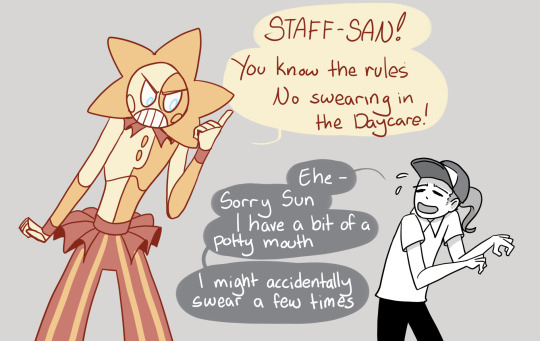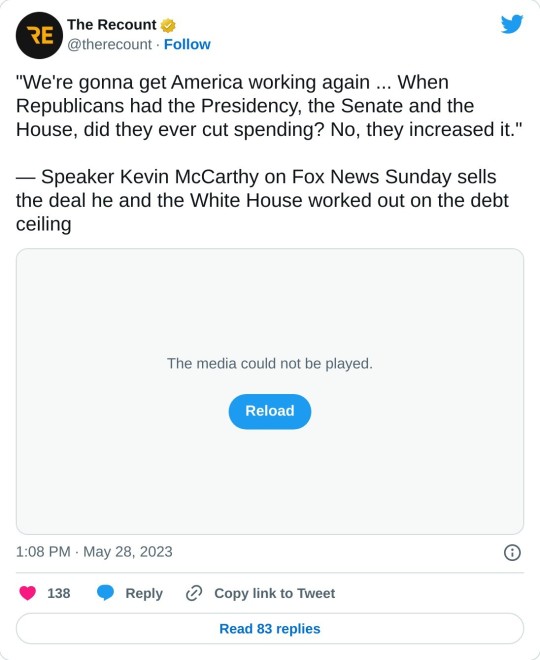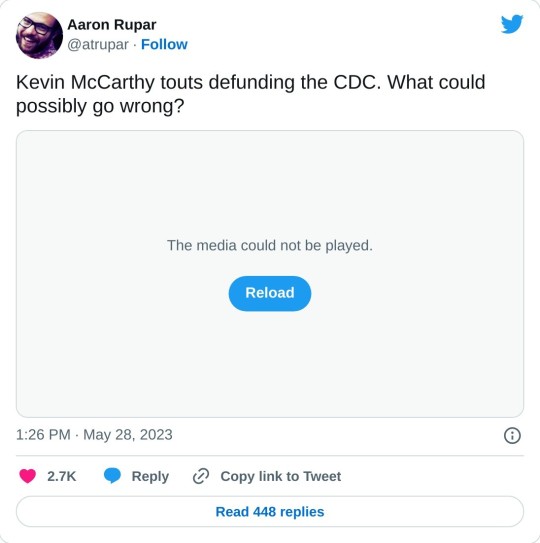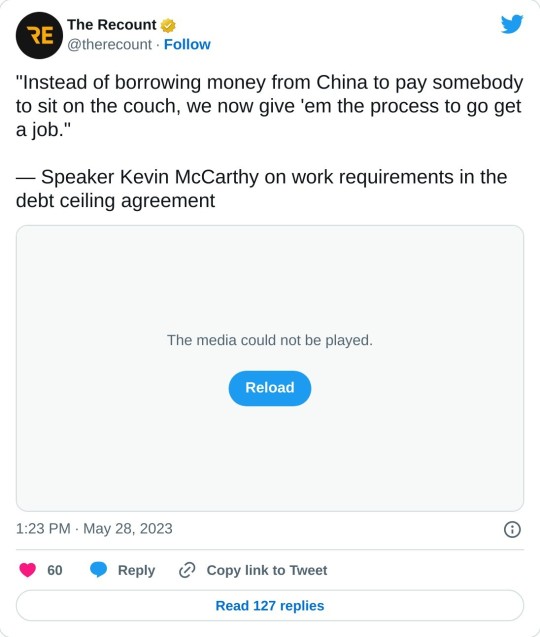#secured debts
Text
How to shatter the class solidarity of the ruling class

I'm touring my new, nationally bestselling novel The Bezzle! Catch me WEDNESDAY (Apr 11) at UCLA, then Chicago (Apr 17), Torino (Apr 21) Marin County (Apr 27), Winnipeg (May 2), Calgary (May 3), Vancouver (May 4), and beyond!

Audre Lorde counsels us that "The Master's Tools Will Never Dismantle the Master's House," while MLK said "the law cannot make a man love me, but it can restrain him from lynching me." Somewhere between replacing the system and using the system lies a pragmatic – if easily derailed – course.
Lorde is telling us that a rotten system can't be redeemed by using its own chosen reform mechanisms. King's telling us that unless we live, we can't fight – so anything within the system that makes it easier for your comrades to fight on can hasten the end of the system.
Take the problems of journalism. One old model of journalism funding involved wealthy newspaper families profiting handsomely by selling local appliance store owners the right to reach the townspeople who wanted to read sports-scores. These families expressed their patrician love of their town by peeling off some of those profits to pay reporters to sit through municipal council meetings or even travel overseas and get shot at.
In retrospect, this wasn't ever going to be a stable arrangement. It relied on both the inconstant generosity of newspaper barons and the absence of a superior way to show washing-machine ads to people who might want to buy washing machines. Neither of these were good long-term bets. Not only were newspaper barons easily distracted from their sense of patrician duty (especially when their own power was called into question), but there were lots of better ways to connect buyers and sellers lurking in potentia.
All of this was grossly exacerbated by tech monopolies. Tech barons aren't smarter or more evil than newspaper barons, but they have better tools, and so now they take 51 cents out of every ad dollar and 30 cents out of ever subscriber dollar and they refuse to deliver the news to users who explicitly requested it, unless the news company pays them a bribe to "boost" their posts:
https://www.eff.org/deeplinks/2023/04/saving-news-big-tech
The news is important, and people sign up to make, digest, and discuss the news for many non-economic reasons, which means that the news continues to struggle along, despite all the economic impediments and the vulture capitalists and tech monopolists who fight one another for which one will get to take the biggest bite out of the press. We've got outstanding nonprofit news outlets like Propublica, journalist-owned outlets like 404 Media, and crowdfunded reporters like Molly White (and winner-take-all outlets like the New York Times).
But as Hamilton Nolan points out, "that pot of money…is only large enough to produce a small fraction of the journalism that was being produced in past generations":
https://www.hamiltonnolan.com/p/what-will-replace-advertising-revenue
For Nolan, "public funding of journalism is the only way to fix this…If we accept that journalism is not just a business or a form of entertainment but a public good, then funding it with public money makes perfect sense":
https://www.hamiltonnolan.com/p/public-funding-of-journalism-is-the
Having grown up in Canada – under the CBC – and then lived for a quarter of my life in the UK – under the BBC – I am very enthusiastic about Nolan's solution. There are obvious problems with publicly funded journalism, like the politicization of news coverage:
https://www.theguardian.com/media/2023/jan/24/panel-approving-richard-sharp-as-bbc-chair-included-tory-party-donor
And the transformation of the funding into a cheap political football:
https://www.cbc.ca/news/politics/poilievre-defund-cbc-change-law-1.6810434
But the worst version of those problems is still better than the best version of the private-equity-funded model of news production.
But Nolan notes the emergence of a new form of hedge fund news, one that is awfully promising, and also terribly fraught: Hunterbrook Media, an investigative news outlet owned by short-sellers who pay journalists to research and publish damning reports on companies they hold a short position on:
https://hntrbrk.com/
For those of you who are blissfully distant from the machinations of the financial markets, "short selling" is a wager that a company's stock price will go down. A gambler who takes a short position on a company's stock can make a lot of money if the company stumbles or fails altogether (but if the company does well, the short can suffer literally unlimited losses).
Shorts have historically paid analysts to dig into companies and uncover the sins hidden on their balance-sheets, but as Matt Levine points out, journalists work for a fraction of the price of analysts and are at least as good at uncovering dirt as MBAs are:
https://www.bloomberg.com/opinion/articles/2024-04-02/a-hedge-fund-that-s-also-a-newspaper
What's more, shorts who discover dirt on a company still need to convince journalists to publicize their findings and trigger the sell-off that makes their short position pay off. Shorts who own a muckraking journalistic operation can skip this step: they are the journalists.
There's a way in which this is sheer genius. Well-funded shorts who don't care about the news per se can still be motivated into funding freely available, high-quality investigative journalism about corporate malfeasance (notoriously, one of the least attractive forms of journalism for advertisers). They can pay journalists top dollar – even bid against each other for the most talented journalists – and supply them with all the tools they need to ply their trade. A short won't ever try the kind of bullshit the owners of Vice pulled, paying themselves millions while their journalists lose access to Lexisnexis or the PACER database:
https://pluralistic.net/2024/02/24/anti-posse/#when-you-absolutely-positively-dont-give-a-solitary-single-fuck
The shorts whose journalists are best equipped stand to make the most money. What's not to like?
Well, the issue here is whether the ruling class's sense of solidarity is stronger than its greed. The wealthy have historically oscillated between real solidarity (think of the ultrawealthy lobbying to support bipartisan votes for tax cuts and bailouts) and "war of all against all" (as when wealthy colonizers dragged their countries into WWI after the supply of countries to steal ran out).
After all, the reason companies engage in the scams that shorts reveal is that they are profitable. "Behind every great fortune is a great crime," and that's just great. You don't win the game when you get into heaven, you win it when you get into the Forbes Rich List.
Take monopolies: investors like the upside of backing an upstart company that gobbles up some staid industry's margins – Amazon vs publishing, say, or Uber vs taxis. But while there's a lot of upside in that move, there's also a lot of risk: most companies that set out to "disrupt" an industry sink, taking their investors' capital down with them.
Contrast that with monopolies: backing a company that merges with its rivals and buys every small company that might someday grow large is a sure thing. Shriven of "wasteful competition," a company can lower quality, raise prices, capture its regulators, screw its workers and suppliers and laugh all the way to Davos. A big enough company can ignore the complaints of those workers, customers and regulators. They're not just too big to fail. They're not just too big to jail. They're too big to care:
https://pluralistic.net/2024/04/04/teach-me-how-to-shruggie/#kagi
Would-be monopolists are stuck in a high-stakes Prisoner's Dilemma. If they cooperate, they can screw over everyone else and get unimaginably rich. But if one party defects, they can raid the monopolist's margins, short its stock, and snitch to its regulators.
It's true that there's a clear incentive for hedge-fund managers to fund investigative journalism into other hedge-fund managers' portfolio companies. But it would be even more profitable for both of those hedgies to join forces and collude to screw the rest of us over. So long as they mistrust each other, we might see some benefit from that adversarial relationship. But the point of the 0.1% is that there aren't very many of them. The Aspen Institute can rent a hall that will hold an appreciable fraction of that crowd. They buy their private jets and bespoke suits and powdered rhino horn from the same exclusive sellers. Their kids go to the same elite schools. They know each other, and they have every opportunity to get drunk together at a charity ball or a society wedding and cook up a plan to join forces.
This is the problem at the core of "mechanism design" grounded in "rational self-interest." If you try to create a system where people do the right thing because they're selfish assholes, you normalize being a selfish asshole. Eventually, the selfish assholes form a cozy little League of Selfish Assholes and turn on the rest of us.
Appeals to morality don't work on unethical people, but appeals to immorality crowds out ethics. Take the ancient split between "free software" (software that is designed to maximize the freedom of the people who use it) and "open source software" (identical to free software, but promoted as a better way to make robust code through transparency and peer review).
Over the years, open source – an appeal to your own selfish need for better code – triumphed over free software, and its appeal to the ethics of a world of "software freedom." But it turns out that while the difference between "open" and "free" was once mere semantics, it's fully possible to decouple the two. Today, we have lots of "open source": you can see the code that Google, Microsoft, Apple and Facebook uses, and even contribute your labor to it for free. But you can't actually decide how the software you write works, because it all takes a loop through Google, Microsoft, Apple or Facebook's servers, and only those trillion-dollar tech monopolists have the software freedom to determine how those servers work:
https://pluralistic.net/2020/05/04/which-side-are-you-on/#tivoization-and-beyond
That's ruling class solidarity. The Big Tech firms have hidden a myriad of sins beneath their bafflegab and balance-sheets. These (as yet) undiscovered scams constitute a "bezzle," which JK Galbraith defined as "the magic interval when a confidence trickster knows he has the money he has appropriated but the victim does not yet understand that he has lost it."
The purpose of Hunterbrook is to discover and destroy bezzles, hastening the moment of realization that the wealth we all feel in a world of seemingly orderly technology is really an illusion. Hunterbrook certainly has its pick of bezzles to choose from, because we are living in a Golden Age of the Bezzle.
Which is why I titled my new novel The Bezzle. It's a tale of high-tech finance scams, starring my two-fisted forensic accountant Marty Hench, and in this volume, Hench is called upon to unwind a predatory prison-tech scam that victimizes the most vulnerable people in America – our army of prisoners – and their families:
https://us.macmillan.com/books/9781250865878/thebezzle
The scheme I fictionalize in The Bezzle is very real. Prison-tech monopolists like Securus and Viapath bribe prison officials to abolish calls, in-person visits, mail and parcels, then they supply prisoners with "free" tablets where they pay hugely inflated rates to receive mail, speak to their families, and access ebooks, distance education and other electronic media:
https://pluralistic.net/2024/04/02/captive-customers/#guillotine-watch
But a group of activists have cornered these high-tech predators, run them to ground and driven them to the brink of extinction, and they've done it using "the master's tools" – with appeals to regulators and the finance sector itself.
Writing for The Appeal, Dana Floberg and Morgan Duckett describe the campaign they waged with Worth Rises to bankrupt the prison-tech sector:
https://theappeal.org/securus-bankruptcy-prison-telecom-industry/
Here's the headline figure: Securus is $1.8 billion in debt, and it has eight months to find a financier or it will go bust. What's more, all the creditors it might reasonably approach have rejected its overtures, and its bonds have been downrated to junk status. It's a dead duck.
Even better is how this happened. Securus's debt problems started with its acquisition, a leveraged buyout by Platinum Equity, who borrowed heavily against the firm and then looted it with bogus "management fees" that meant that the debt continued to grow, despite Securus's $700m in annual revenue from America's prisoners. Platinum was just the last in a long line of PE companies that loaded up Securus with debt and merged it with its competitors, who were also mortgaged to make profits for other private equity funds.
For years, Securus and Platinum were able to service their debt and roll it over when it came due. But after Worth Rises got NYC to pass a law making jail calls free, creditors started to back away from Securus. It's one thing for Securus to charge $18 for a local call from a prison when it's splitting the money with the city jail system. But when that $18 needs to be paid by the city, they're going to demand much lower prices. To make things worse for Securus, prison reformers got similar laws passed in San Francisco and in Connecticut.
Securus tried to outrun its problems by gobbling up one of its major rivals, Icsolutions, but Worth Rises and its coalition convinced regulators at the FCC to block the merger. Securus abandoned the deal:
https://worthrises.org/blogpost/securusmerger
Then, Worth Rises targeted Platinum Equity, going after the pension funds and other investors whose capital Platinum used to keep Securus going. The massive negative press campaign led to eight-figure disinvestments:
https://www.latimes.com/business/story/2019-09-05/la-fi-tom-gores-securus-prison-phone-mass-incarceration
Now, Securus's debt became "distressed," trading at $0.47 on the dollar. A brief, covid-fueled reprieve gave Securus a temporary lifeline, as prisoners' families were barred from in-person visits and had to pay Securus's rates to talk to their incarcerated loved ones. But after lockdown, Securus's troubles picked up right where they left off.
They targeted Platinum's founder, Tom Gores, who papered over his bloody fortune by styling himself as a philanthropist and sports-team owner. After a campaign by Worth Rises and Color of Change, Gores was kicked off the Los Angeles County Museum of Art board. When Gores tried to flip Securus to a SPAC – the same scam Trump pulled with Truth Social – the negative publicity about Securus's unsound morals and financials killed the deal:
https://twitter.com/WorthRises/status/1578034977828384769
Meanwhile, more states and cities are making prisoners' communications free, further worsening Securus's finances:
https://pluralistic.net/2024/02/14/minnesota-nice/#shitty-technology-adoption-curve
Congress passed the Martha Wright-Reed Just and Reasonable Communications Act, giving the FCC the power to regulate the price of federal prisoners' communications. Securus's debt prices tumbled further:
https://www.govtrack.us/congress/bills/117/s1541
Securus's debts were coming due: it owes $1.3b in 2024, and hundreds of millions more in 2025. Platinum has promised a $400m cash infusion, but that didn't sway S&P Global, a bond-rating agency that re-rated Securus's bonds as "CCC" (compare with "AAA"). Moody's concurred. Now, Securus is stuck selling junk-bonds:
https://www.govtrack.us/congress/bills/117/s1541
The company's creditors have given Securus an eight-month runway to find a new lender before they force it into bankruptcy. The company's debt is trading at $0.08 on the dollar.
Securus's major competitor is Viapath (prison tech is a duopoly). Viapath is also debt-burdened and desperate, thanks to a parallel campaign by Worth Rises, and has tried all of Securus's tricks, and failed:
https://pestakeholder.org/news/american-securities-fails-to-sell-prison-telecom-company-viapath/
Viapath's debts are due next year, and if Securus tanks, no one in their right mind will give Viapath a dime. They're the walking dead.
Worth Rise's brilliant guerrilla warfare against prison-tech and its private equity backers are a master class in using the master's tools to dismantle the master's house. The finance sector isn't a friend of justice or working people, but sometimes it can be used tactically against financialization itself. To paraphrase MLK, "finance can't make a corporation love you, but it can stop a corporation from destroying you."
Yes, the ruling class finds solidarity at the most unexpected moments, and yes, it's easy for appeals to greed to institutionalize greediness. But whether it's funding unbezzling journalism through short selling, or freeing prisons by brandishing their cooked balance-sheets in the faces of bond-rating agencies, there's a lot of good we can do on the way to dismantling the system.

If you'd like an essay-formatted version of this post to read or share, here's a link to it on pluralistic.net, my surveillance-free, ad-free, tracker-free blog:
https://pluralistic.net/2024/04/08/money-talks/#bullshit-walks

Image:
KMJ (modified)
https://commons.wikimedia.org/wiki/File:Boerse_01_KMJ.jpg
CC BY-SA 3.0
https://creativecommons.org/licenses/by-sa/3.0/deed.en
#pluralistic#shorts#short sellers#news#private equity#private prisons#securus#prison profiteers#the bezzle#anything that cant go on forever eventually stop#steins law#hamilton nolan#Platinum Equity#American Securities#viapath#global tellink#debt#jpay#worth rises#insurance#spacs#fcc#bond rating#moodys#the appeal#saving the news from big tech#hunterbrook media#journalism
797 notes
·
View notes
Text





a moment of silence for our Sunman, a plushie gets more game than he does 😔
Bonus:

#jesus christ this was an ass to edit#i know some panels look shitty i tried my best :"(((#anyways haha wouldn't it be nice if we'd have official merchandise of the daycare attendant that doesn't leave you in debt?? haha#at least i got some knock off sun n moon plushies#and yes i DO sleep with them bc they're very comfortable thank you very much#so more or less self indulgent comic bc i really love plushies#fnaf security breach#fnaf daycare attendant#fnaf superstar daycare#fnaf sun#sundrop#sun x y/n#sundrop x y/n#doodles#Ghost doodles
4K notes
·
View notes
Text
its so weird seeing posts that mock uncle jim for worrying about li ming's queerness as though his dead boyfriend's parents (legally) stealing his entire life savings and leaving him to manage a restaurant business specifically because gay couples aren't legally recognized as couples wasn't what put him in a cycle of crushing debt and endless poverty in the first place
#yeah hi CONTEXT MATTERS#can western fandom pls stop ignoring this shows biting social commentary on queer people not being legally recognized#also heart is the darling of all time BUT his careless lie literally forced li ming to work off a debt that was never his#and wouldve seriously impacted jim's business and financial state had wen not offered to work free#which was a boon but having to live on someone elses generosity like that is still a stress#because people (understandably!!!!) can and do get tired of giving away a lot of time and energy for nothing#wen is uncommonly generous and luckily its not too long before other circumstances help lift jim to safer footing#but none of that was SECURE getting to that point#jim is right to worry! it comes out badly and li ming's queerness is not the actual issue but jims reasoning is EXTREMELY UNDERSTANDABLE#sighs#moonlight chicken
355 notes
·
View notes
Photo







f*ck
#never gonna pay that college debt now#would rather be put in timeout#security and staff au#fnaf sun#fnaf moon#staff-san#fnaf security breach#fnaf daycare attendant#fnaf staff#security breach daycare attendant#security breach#sundrop#moondrop#art of bunmuffin
2K notes
·
View notes
Video
Social Security and Medicare and debt
Manufacturing consent
#tiktok#Manufacturing Consent#Social Security#Medicare#privatisation#medicare for all#public education#debt#us government#government#government and politics#defunding#defund#profits
905 notes
·
View notes
Text
Thoughts?
#social security#politics#politicians#democrats#republicans#conservatives#liberals#economy#economics#retirement#retirement checks#retire#national debt#government#united states government#United States#USA#America#assets#reality#current events#retirement calculator#scam#scamming#pension#labor#retirement age#employers#employment#employees
20 notes
·
View notes
Text

We do not want this. This is not a decision being made on behalf of the American people. Literally, no one wants this, and we're being forced to pay for it. Our tax dollars funding genocide. I feel sick. I don't think any amount of protests on any scale will change anything because clearly, this is a nefarious and corrupt government decision, likely fueled by greed. It wasn't made with American citizens in mind, so I'm not sure how we can stop it.
#free palestine#we're still dealing with inflation#we're in a housing crisis#they won't forgive all student loan debt#they won't make university free or affordable#won't consider universal health care or#universal basic income#or reparations for Black Americans#and our social security and entitlement programs are always in danger#ALL because of what they claim we can't afford#yet we KEEP giving BILLIONS to other countries#at least it was understandable when it was actual aid#but this is literally for weapons to murder innocent people
44 notes
·
View notes
Text
Rarely do I quote Republicans for political insights, but this video of Ronald Reagan telling the truth about how Social Security doesn’t contribute to the deficit was too great to pass up. And Mitch McConnell and Republicans know Social Security doesn’t contribute to the deficit, but that won’t stop them from pushing their big lie anyway.
And lest you think that Ronald Reagan even momentarily did something good, always remember that Reagan was the first one to tax Social Security in order to pay for his tax cuts to the rich.

The only time Republicans pretend to care about the federal deficit is when there’s a Democratic President in the White House.
Peep the decades-long okie doke:
1) Republicans run up the deficit by passing giant tax cuts for millionaires and billionaires
2) and then they say that to reduce the deficit, which remember, they just caused, we need austerity cuts to the social safety net: Social Security, Medicare and Medicaid. In other words, poor people need to go without, experience some belt tightening & austerity to pay for rich people living lavishly. It’s class warfare. It’s inflicting austerity on the poor to pay for the transfer of wealth (theft) to the rich.
Conservatives venomously refer to these social programs “entitlements” as if they’re charity or handouts or something, but you earned every penny of that money—you literally have the money (taxes) taken out of your paychecks over the years. That is YOUR money.
And the deficit? That’s money that’s already been spent. It��s not money Congress is trying to decide how to appropriate in the future—IT’S MONEY THAT HAS ALREADY BEEN SPENT. So when Republicans threaten to not pay the debt, you might be surprised to know that they’re basically saying America shouldn’t pay its bills. Or maybe you wouldn’t be surprised.
The bottom line is this: Republicans run up the deficit, and Dems lower deficits.

But here’s the real kicker - deficits aren’t nearly as important as Republicans make them out to be. It’s a bit more complicated than a few sentences, but if deficits were truly as catastrophic as Republicans say, then they wouldn’t keep running up the debt every time they’re in control of Congress.
Not that I’m completely against running up a deficit. Especially if it’s used on things like Medicare For All, or universal education.
#politics#ronald reagan#social security#mitch mcconnell#republicans#debt ceiling#national debt#deficit hawks#economics#deficit#austerity
89 notes
·
View notes
Text
Haha my bad, I have $30 for the rest of the month. 8)
#for real you don't know how bad it is living on social security#and at this time I don't even have the skills to apply for part time work#which I will be immediately rejected for because algorithms hate disabled people#not that I can do the heavy lifting or man the cash register that is the bare bones requirement of entry level work#boy this BA in special education and most of an MA sure were worth the time huh?#anyway let me know how you're surviving on $950 a month if you're about to say I'm just bad at money#you have to have money to be bad at it first 8)#razz rambles#trying to pay down $2.5k credit debt when you have to keep using your credit card to live really sucks
8 notes
·
View notes
Text
After The White House and Republicans in Congress reached a tentative agreement on the debt ceiling, House Speaker Kevin McCarthy went on Fox News Sunday to boast about making struggling Americans work in order to continue receiving food aid.
Although precise details have not been released, the deal will increase the maximum age at which adults must work in order to receive Supplemental Nutrition Assistance Program (SNAP) food stamps from age 50 to 54. There are exceptions, however, for veterans, unhoused individuals, and those with dependents. The deal also includes changes to Temporary Assistance for Needy Families (TANF) but those details have not been made public.
“We finally were able to cut spending. We’re the first Congress to vote for cutting spending year over year,” McCarthy boasted Sunday on Fox. “So, you cut that back. You fully fund the veterans. You fully fund defense. But you take that non-defense spending all the way back to 2022 levels. Now you get work requirements for TANF and SNAP. The Democrats said that was a red line.”
At another point in the interview, McCarthy claimed that “We’re going to get America working again,” and that the deal includes “work requirements to help people out of poverty into jobs.” At this, host Shannon Bream pushed back on McCarthy, arguing that the work requirements are not tough enough for the most extreme members of the GOP caucus.
"We're gonna get America working again … When Republicans had the Presidency, the Senate and the House, did they ever cut spending? No, they increased it."

“The White House, that’s an area where they’re celebrating,” Bream said of the work requirements. “They say there are no changes to Medicaid. You referenced SNAP and TANF. So basically, SNAP includes an expansion for veterans and people who are homeless. So there’s an expansion there to some extent… and the changes that you did get will lift the age and the requirements and those kinds of things, but they sunset. So they don’t last for very long.”
It should be noted, though, that the vast majority of Americans are working. Unemployment remains extremely low at 3.4% as of this April.
McCarthy also bragged about cutting funding to the Centers for Disease Control and Prevention (CDC). “This is the largest recision in American history,” McCarthy said. “You can add up all the recisions from all the other Congresses. This is greater. And what are we pulling back? CDC’s Global Health Fund. So no longer are we sending $400 million of American taxpayers’ money to China.”

According to the CDC, the Global Health Fund supports HIV/AIDS prevention and care, immunizations, and global disease detection and emergency response. On the heels of a global pandemic, cutting this funding seems dangerous, but after seeing their response to COVID, it’s not surprising that Republicans in Congress don’t take global health seriously.

Returning to the topic of work requirements, McCarthy said, “At the end of the day, it saves more money, ’cause what does a work requirement do? It’s only on able-bodied people with no dependents. Instead of borrowing money from China to pay somebody to sit on the couch, we now give them the process to go get a job. Every study has shown when you do that, it puts people to work. And when they work, what happens? More people are paying into social security and Medicare.”
Sure, it may “save” some money in food aid, but at what cost?
#us politics#news#republicans#conservatives#tweet#2023#gop policy#gop platform#gop#rep. kevin mccarthy#national debt#debt crisis#debt ceiling#supplemental nutrition assistance program#Temporary Assistance for Needy Families#social security#medicare#Fox News Sunday#us house of representatives#biden administration#president joe biden#Shannon Bream#work requirements#china#center for disease control and prevention#Global Health Fund#aaron rupar#rolling stone magazine
38 notes
·
View notes
Text
Mastering the Art of Investing: Practical Strategies for Insightful Decision-Making
Key Point:
Making smart and insightful investment decisions is an attainable goal with the right strategies in place. By recognizing your limitations, managing emotions, seeking professional guidance, and aligning your investments with personal objectives, you can cultivate a robust and successful investment portfolio that stands the test of time.
Sound investment decisions are the bedrock of financial success. However, navigating the complex world of investing can be challenging, even for the most seasoned investors. This post explores practical strategies for making smart and insightful investment decisions, empowering you to grow your wealth with confidence and finesse.
Recognize the Limits of your Abilities
In both life and investing, it is crucial to acknowledge the boundaries of our expertise. Overestimating our abilities can lead to ill-advised decisions and, ultimately, financial losses. By cultivating humility and seeking external guidance when necessary, we can minimize risks and make more informed investment choices.
Manage Emotional Influence on Decision-Making
Emotions can significantly impact our ability to make rational decisions. To circumvent the sway of emotions, adopt a disciplined approach to investing, relying on data-driven analysis and long-term strategies rather than succumbing to impulsive reactions.
Leverage the Expertise of an Advisor
Engaging a professional financial advisor is a prudent investment decision. Their wealth of knowledge and experience can help you navigate market complexities and identify opportunities tailored to your financial goals, risk tolerance, and investment horizon.
Maintain Composure Amidst Market Volatility
Periods of market turbulence can incite panic among investors. However, it is essential to remain level-headed and maintain a long-term perspective during such times. Avoid making impulsive decisions based on short-term fluctuations and focus on your overarching financial objectives.
Assess Company Management Actions Over Rhetoric
When evaluating potential investments, examine the actions of a company's management rather than relying solely on their statements. This approach ensures a more accurate understanding of the organization's performance, financial health, and growth prospects.
Prioritize Value Over Glamour in Investment Selection
The most expensive investment options are not always the wisest choices. Focus on identifying value rather than being swayed by glamorous or high-priced options. This strategy promotes long-term financial growth and mitigates the risk of overpaying for underperforming assets.
Exercise Caution with Novel and Exotic Investments
While unique and exotic investment opportunities may appear enticing, approach them with caution. Ensure thorough research and due diligence before committing to such investments, as they may carry higher risks and potential pitfalls.
Align Investments with Personal Goals
Invest according to your individual objectives rather than adhering to generic rules or mimicking the choices of others. Personalized investment strategies are more likely to yield favorable results, as they account for your unique financial circumstances, risk appetite, and long-term aspirations.
Making smart and insightful investment decisions is an attainable goal with the right strategies in place. By recognizing your limitations, managing emotions, seeking professional guidance, and aligning your investments with personal objectives, you can cultivate a robust and successful investment portfolio that stands the test of time.
Action plan: Learn a few simple rules and ignore the rest of the advice you receive.
It’s easy to become completely overwhelmed by the volume of advice available about investing. However, you don’t need to become an expert on the stock market in order to become a good investor.
Just like an amateur poker player can go far if he simply learns to fold his worst hands and bet on his best ones, a novice investor can become very competent just by following a few simple rules. For example, he should learn not to overreact to dips in the market and make sure to purchase value stocks instead of glamour stocks.
#Financial freedom#Building wealth#Personal finance strategies#Investment advice#Passive income stream#Early retirement planning#Debt reduction#Budgeting tips#Saving money#Wealth management#Financial independence#Secure financial future#Retirement planning#Financial planning#Personal finance#Money management#Investment strategies#Retirement savings#Investment portfolio#Financial education#Wealth creation#Financial goals#Wealth building#Financial security#Retirement income#Passive income ideas#Financial advice#Financial wellness#Financial planning tools#Financial management
29 notes
·
View notes
Text

Sen. Mitch McConnell says Medicare, Social Security must change to fix U.S. debt
Social Security and the Federal Deficit
8 notes
·
View notes
Text
super lame that its kyoshi and not katara doing the opening. "just when we needed him most the avatar vanished" means nothing coming from someone who died long before any of this was an issue and everything from someone who has known nothing but terror and war from a young age as a direct result of the avatar vanishing. when katara says "just when we needed him most he vanished" she is speaking from personal fucking experience. she is saying, just when i needed him most. just when my people needed him most. just when my mother and father and brother and grandmother and everyone i have ever known needed him most. kyoshi and everyone shes ever known are fucking dead. theyre dead. in the ground. like i think shes cool as fuck too but the emotional wavelength is just NOT there
#my thots#the deal is i get to watch atla la but everytime i feel the need to stop and post i have to swap over to my homework#<- no one is enforcing this but if i dont pass all my classes my mother will act as if ive never heard of student loan debt before#and i really cannot take that. so#and i mean also itll be harder to get into grad school. but like as long as i have my ba i can get a job teaching#no job security quite like the knowledge that no matter how much i hate the place my old high school is always hiring and the standards are#on the floor#is the pay good no but a job is a job#bee liveblogs!#atla live action#atla spoilers#not really but wtvr#📺
5 notes
·
View notes
Text
money anxiety sucks. like. Listen. I am making more money than I have ever before in my life. contracted for the next year to make this amount of money, getting paid weekly for a full time job
I am STILL barely scraping by bc of the debt I have accumulated over the past 15 years just to survive.
when millennials complain about wage theft and housing costs and education debt relief, like...how do people not Get It????
#thatdorianguy#luckiky i have FINALLY caught up on the car after 3 months#still have the credit card#still have to pay gas and medical expenses consistently#just soent $140 on contacts for the next 6 months#rent got raised#luckily the fiance is feeling extremely secure in his new salaried position#but every time he insists on sending me money to pay for the car we share#i feel. so useless.#it makes sense for him to contribute to that since it is a shared vehicle#but its in my name. it's my debt.#i dont like him shouldering that
14 notes
·
View notes
Text
Kaeya and Rethel both have a favorite method to ward off any potential suitors, and it’s dueling.
#hc; kaeya#hc; rethel#//Wanted or unwanted; it’s the same for the most part. They won’t tend to accept any suitor who can’t best them in a duel#//Rethel in particular favored this after many started approaching her father for her hand; & he suggested she consider them for self-gain#//Still; she stubbornly demanded only those worthy enough to best her can have her; no gifts or sweet poems could sway her otherwise#//Other family members begged her to reconsider; but Anfortas agreed w her bc she claimed it was to ensure their line continued Strong#//Only the BEST for the Alberichs. @ the rate she was going tho; she was likely to end up a spinster. Not that she or Anfortas saw any issu#//Kae does this; bc he got spooked to hell and back bc a slew of marriage offers after Crepus’ death#//Bc folks claimed he ‘needed’ support after everything that happened; esp considering Crepus was slandered. That it would ‘BENEFIT’ him to#//Bc Luc wasn’t there to help get them off his back nor to actively secure of Luc’s hold as the Ragnvindr head for himself#//Some people assumed Kae would be it and made their move to take advantage. which Kae DETESTED for many reasons#//The biggest ones being ‘how DARE they assume HE is the new head of the family now that Diluc’s gone’#//And ‘Oh stars; oh fucking he’ll; he does NOT need this; HE of all people does NOT need nor deserve to be married; oh fucking SHIT-‘#//But yeah#//Both trained quite rigorously to ensure their independence; not ONE person has bested them since#//Esp since they both will pull out all the stops to ensure it; even playing dirty when need be#//Kae is more lax abt this tho—there’s a higher chance of him making an exception if he likes the other enough. & they are ‘safe’ enough#//Of the other muses; Xianyun; Beidou; and Dehya DEFINITELY do this to be done with unwanted suitors; Period. Xian; mostly to test ppl#//Idarias used to as well; but that was before the karmic debt made her more inclined to just try & kill anyone she comes across#//Xian & Ei would follow Kae & Rethel; in terms of dealing with suitors/testing if worthy. In Ei’s case; she’s too focused crushing on Miko#//Sb who CAN beat her can change her mind; or at least if they put up a good enough fight; they can shift her attention onto them#//Taru; honestly the fight is a prerequisite just to get his favor/attention at ALL#//Will NOT be willing to get genuinely close with much less accepting/choosing to court ANYONE unless they can manage to hold their own#hc; cloud retainer#hc; beidou#hc; dehya#hc; indarias#hc; ei#hc; tartaglia
4 notes
·
View notes
Text
I just want to be financially secure and not have to worry about the timing of my bills (especially my mortgage) every month, and yet every time I express this to my father it's "even if you had more money you'd just want more things, it's never enough" like I'm some kind of greed addled monster just because I'm exhausted over stressing about how at least once a month my debit account dips into the low hundreds because my mortgage is one entire paycheck and I just wish my house was either paid off or my mortgage company didn't mysteriously find a DeFiCiEnCy In My EsCrOw every time I got a raise so they could raise my mortgage payment by the same amount. I'm not greedy I'm just acutely aware of how precarious my financial situation is and wish it wasn't that and I'm so upset at being treated like what I want is an extravagant life when the opposite is true. I just want financial security. That's all.
#don't mind me just venting via text bc i can't articulate this in words#this was provoked by me saying that my first priority with lottery winnings would be to pay off a new house and car for myself#nothing extravagant just newer than what i have now (and electric for the car)#and pay off debts and he got so peeved at me being ''clueless''#bc that's thinking too small? i guess? and when i said i just want financial security#that's when he went on his ''it's never enough'' spiel#god. fuck me for wanting to be able to go out to eat w/o checking my banking app first to see which card i can afford to use#i'm just a selfish fucking greedy monster for wanting a small house that's paid off and an electric car (NOT tesla) also paid off#i'll never be satisfied ig
5 notes
·
View notes